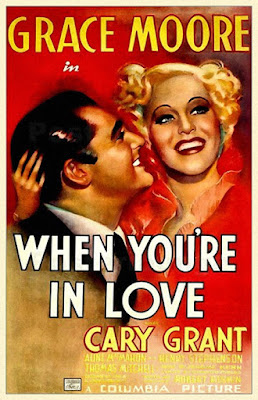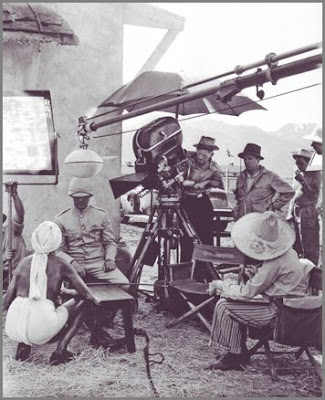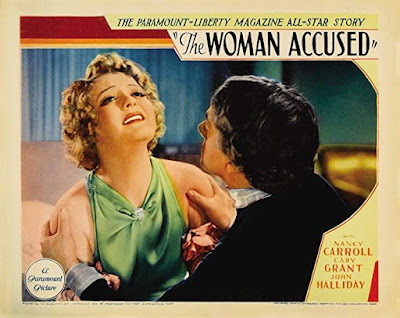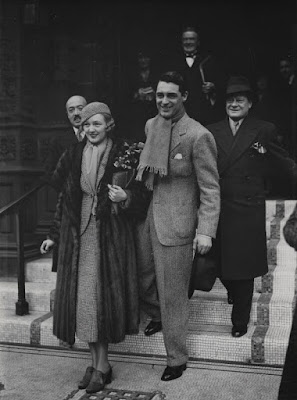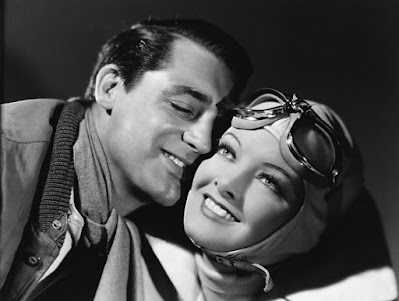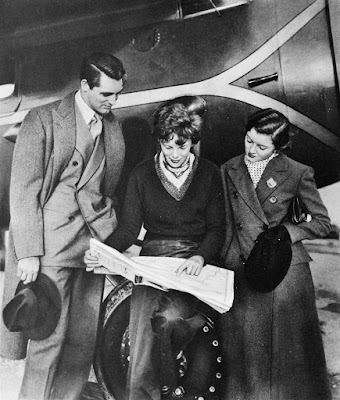On this day back in 1937, Cary Grant released his 25th full length film, When You're In Love. The British title was For You Alone.
The solution: Hudson agrees to marry Fuller, in return for which she pays him $2,000, which allows her to return to New York to resume her opera career. Hudson and Fuller continue to meet and trade barbs, but it's clear they are falling for each other. A highlight is when Fuller joins a 5 piece band to sing "Minnie the Moocher", the Cab Calloway signature number. True love appears to be thwarted by Fuller's career obligations and divorce papers are exchanged. But in the end love is triumphant!
Grace Moore ... Louise Fuller
Cary Grant ... Jimmy Hudson
Henry Stephenson ... Walter Mitchell
Thomas Mitchell ... Hank Miller
Catherine Doucet ... Jane Summers
Luis Alberni ... Luis Perugini
Gerald Oliver Smith ... Gerald Meeker
Emma Dunn ... Mrs. Hamilton
George C. Pearce ... Mr. Hamilton
Frank Puglia ... Carlos
Grace Moore's scene singing "Minnie the Moocher" (with severely laundered lyrics) was included in preview showings, but was left out of the film in the original theatrical and later television release; the scene is now included in Sony's film restoration.
Filmed in 1936, released in 1937, this was Grace Moore's second to last Hollywood film.

